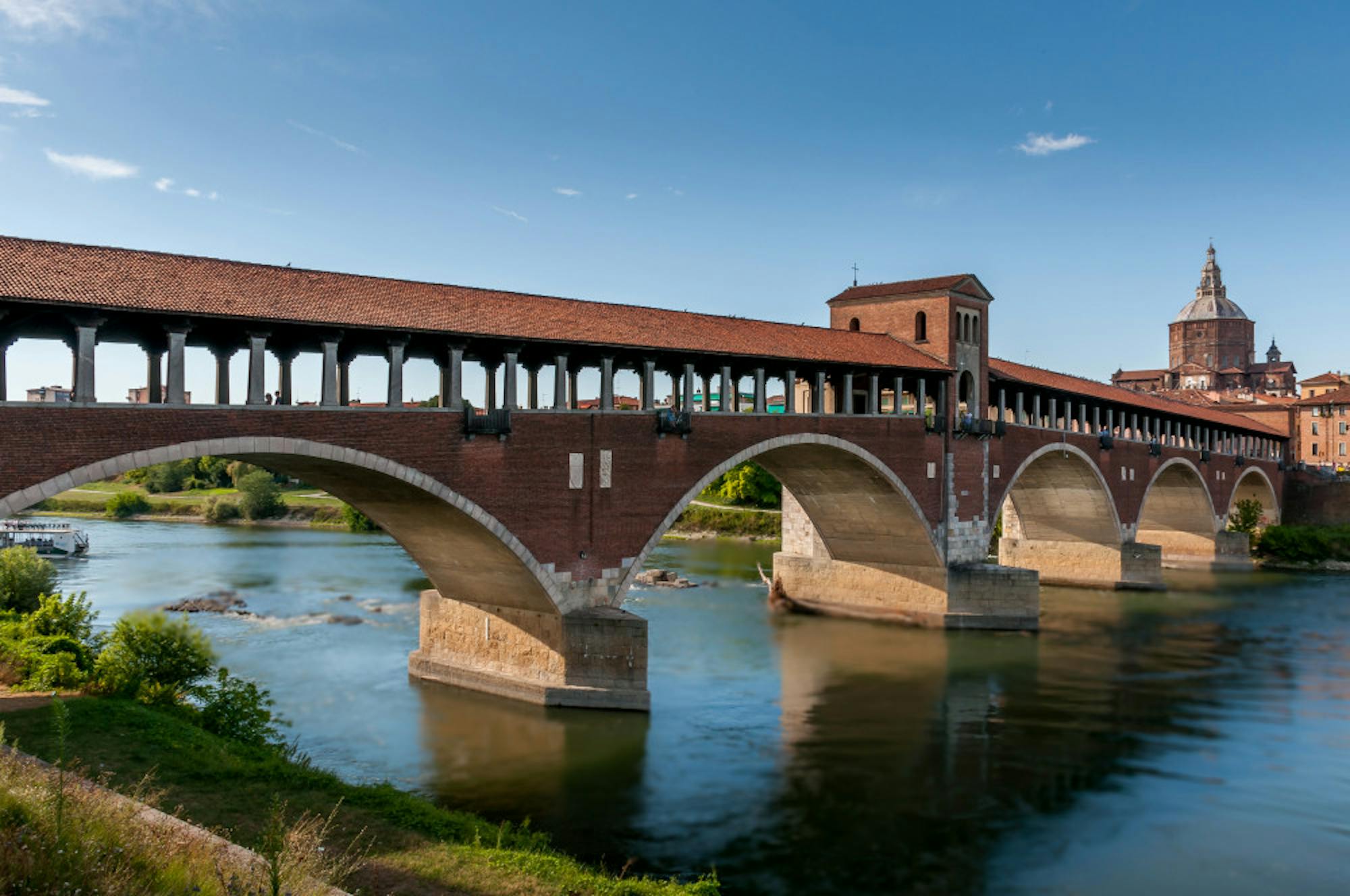A study abroad opportunity in Pavia, Italy is the newest addition to Tufts’ growing roster of global programs. The five-and-a-half-week program, beginning June 17, includes two required courses — one in computer science and another in Italian — totaling seven semester hour units.
Students can choose between two computer science courses, COMP 11 and COMP 52, helping the program appeal to computer science students of differing levels. The program enables engineering students to fulfill one humanities, arts and social sciences (HASS) requirement and one engineering requirement. COMP 52 fulfills major requirements for both computer science and data science majors. For other majors in the Tufts School of Engineering, both COMP 11 and COMP 52 can be applied towards degree requirements, according to Jennifer Stephan, dean of academic advising and undergraduate studies for the School of Engineering.
"Pavia is the first Tufts study abroad program specifically designed to benefit students in the School of Engineering," Stephan told the Daily in an email.
Carmela Merolla, a lecturer in Italian, conceived of the idea for the program with Kevin Paquette, director of international programs and partnerships, and Mala Ghosh, senior director of study abroad and global education.
Merolla says the program grew out of Tufts students’ widespread interest in computer science. Computer science is by far the most popular major at Tufts, according to previous Daily reporting. She added that while many students in the School of Arts & Sciences choose to study abroad, fewer engineering students do, owing to tight schedules and strict requirements.
Merolla intended for the program to appeal to a wide range of students. In the presentation Merolla gave at two information sessions this fall, she chose an image of Pavia’shistoric covered bridge for the title slide. The bridge, Merolla said, represents the program’s goal of bringing together humanities and sciences.
“This was really [intended] for students, not just in engineering, but for everyone who has a very tight schedule and cannot afford the whole semester abroad,” Merolla said.
According to Stephan, approximately 5% of students in the School of Engineering participated in semester-long abroad programs between 2012 and 2016. Merolla says the initial proposal for Tufts' Pavia program was drafted in 2016. Since then, that number has increased to 14%. Paquette attributes this increase to the work of Stephan and Tufts Global Education.
Stephan added that she worked with Fio Omenetto, dean of research for the School of Engineering who has close connections with the University of Pavia, to establish the program, and that computer science Professor Alva Couch helped develop the engineering side of the curriculum.
Unlike Tufts’ Chinese, Japanese, French and Spanish language programs, the Italian department does not currently offer a semester-abroad opportunity. Ghosh said this program fits in well with Tufts Global Education’s larger goal of expanding offerings based on student needs.
“We plan to create more programs abroad that will bring in students from the language departments where we do not offer semester programs. Another critical objective to create an assortment of programs for Engineering students who are seriously underserved in study abroad,” Ghosh told the Daily in an email. “We are optimistic that students will find this a well-designed and carefully crafted group international experience.”
Meals and lodging at the Palazzo Vistarino, a restored 18th-century imperial palace, are included in the $9,700 cost of the program, based at the University of Pavia. On weekend excursions, students will have the opportunity to travel to Milan, to nearby Vigevano, where Leonardo da Vinci worked and attend a wine-tasting in the southern part of the province of Pavia. Venice is accessible by train, and the students will partake in a two-day trip to the Cinque Terre seaside villages on the Italian Riviera.
Pavia was chosen in part because of an existing relationship between Tufts and the University of Pavia, Merolla explained. Tufts professors have traveled there for lectures and courses and University of Pavia professors have come to Medford, she explained.
The program will include opportunities for Tufts students to develop intercultural skills and cross-cultural competencies, Merolla said. “Italian buddies” from the University of Pavia will spend time with Tufts students, familiarizing them with the city and helping them practice their Italian skills. Programming will also include a potluck dinner and Italian movie nights with follow-up cultural discussions.
A live-in resident director will also serve as a resource for students, Paquette said.
“That sounds like a lesson plan for one of my classes,” Merolla said. “The more we thought about it, the more it made sense to send these students abroad to acquire the skills that I'm not gonna say that otherwise they wouldn't acquire, but it certainly really helps them to go abroad.”
Applications for this summer will remain open until Jan. 15, 2020. The program is capped at 24 students, Paquette said. Students are encouraged to apply for financial aid online by Jan. 17. Federal loans and Pell Grants are available, in addition to separate scholarship money set aside for the program.
Paquette and Merolla stressed that they are looking for applications from students, especially underclassmen, who come from diverse academic backgrounds. Students must have a grade-point average of at least 2.75 and do not need to have a computer-science background, though the program can help computer science majors fulfill requirements. Applicants will hear back about acceptances by Jan. 31.
Since this is the program’s first iteration, its details are subject to change in future years. Ghosh said the organizers will consider offering the program earlier in the summer, or at the very end of the summer, to avoid interfering with summer internships and other courses.
New summer program in Pavia, Italy bridges humanities, sciences

Pavia was chosen in part because of an existing relationship between Tufts and the University of Pavia. A bridge in Pavia, Italy is pictured.





